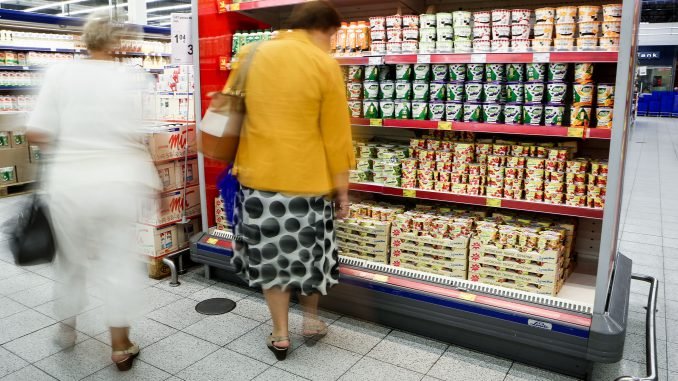
Lithuanian milk processors say, however, that this will not bring quick results.
Prime Minister Aglirdas Butkevičius visited China in March, where he met with his counterpart Li Keqiang. Butkevičius said back then that China would open its market to Lithuanian dairies.
“This is a result of a long and joint effort of all institutions as well as [Butkevičius],” the prime minoister’s spokeswoman Evelina Lazdauskienė told DELFI on Tuesday.
No quick results
Lithuanian dairy processors say that it will take several years of intense work to achieve decent exports to one of the world’s biggest markets.
“Any massive markets, including China’s, are of interest to us. It’s great that we can already send our production there, but it doesn’t mean we will start doing it next month,” Dalius Trumpa, board chairman at the dairy processor Rokiškio Sūris, tells BNS.
The company will have to work at least two years before it can export a sizeable part of its production to China, according to him. The target is several tons of dairy products per month.
Trumpa says the Chinese market has many players and knows virtually nothing about Lithuania, so the company is planning to find local partners.
He tells that Chinese consumers could be interested in Lithuanian cheeses and curds, while products like powdered milk is unlikely to succeed, since the biggest producer, New Zealand, is much closer to China.
Another Lithuanian dairy processor, Pieno Žvaigždės, is also interested in the Chinese market.
“We care for China, but let’s not delude ourselves that they’re waiting for us there. The entire world is eyeing this market,” the company’s CFO Audrius Statulevičius tells BNS.
He agrees that it will take several years of intense work to gain foothold in the market.
Statulevičius believes that Lithuanian cheeses might not be successful with Chinese consumers, since it is not a cheese country. On the other hand, they could be interested in sour products, he believes.
Meanwhile the success of Lithuanian powdered milk will entirely depend on the price it is offered to the market, believes.
“Products sold on the exchange, like powdered milk, are all about the price. If Lithuania can produce them cheaper, we can transport them [to China]. Meanwhile branded products require long and sustained work,” according to Statulevičius.
Lithuania’s dairy exports have hit the rocks after Russia introduced embargo on EU goods in August 2014. Prior to that, Lithuanian dairy processors would sell between 20 and 40% of their production in Russia.

Be the first to comment